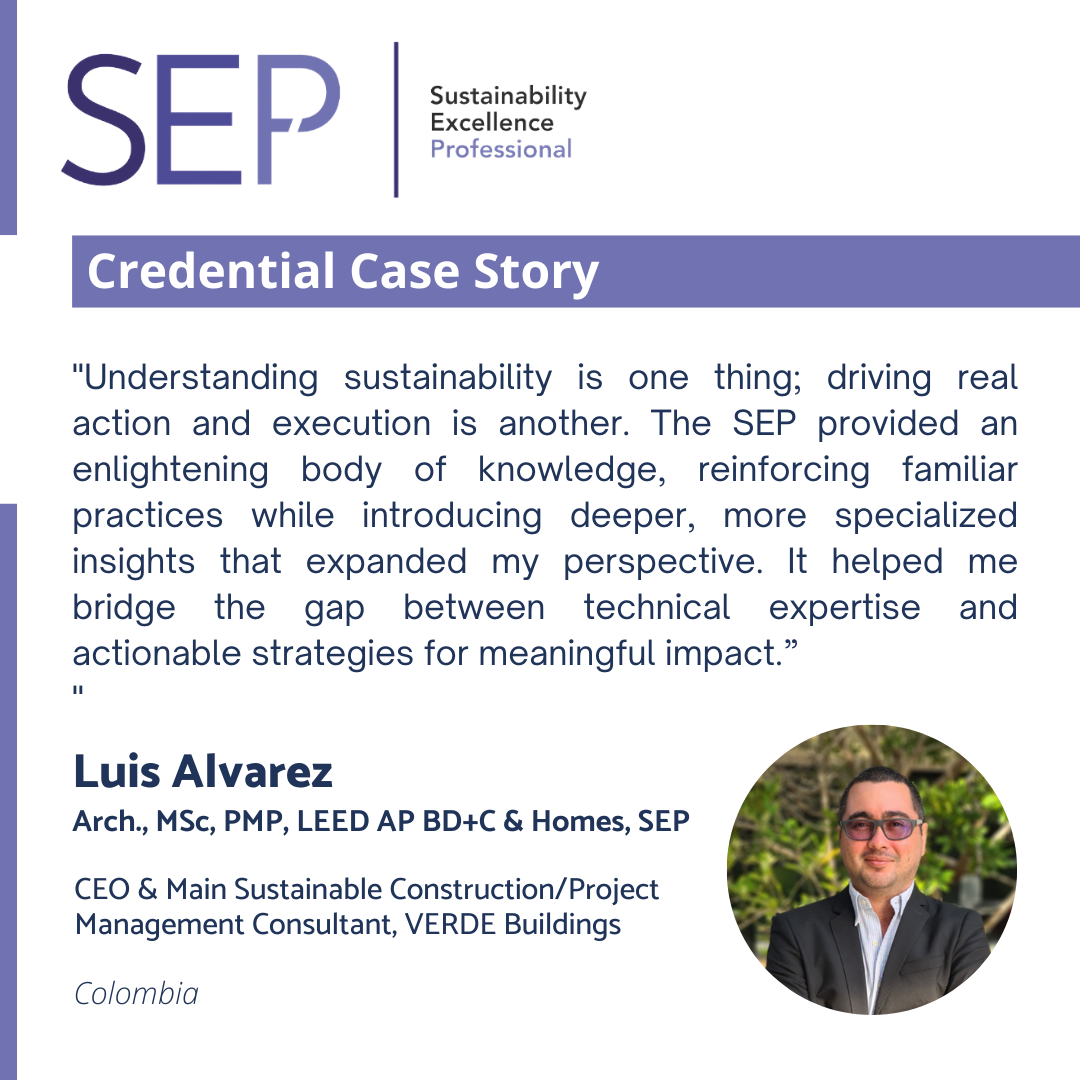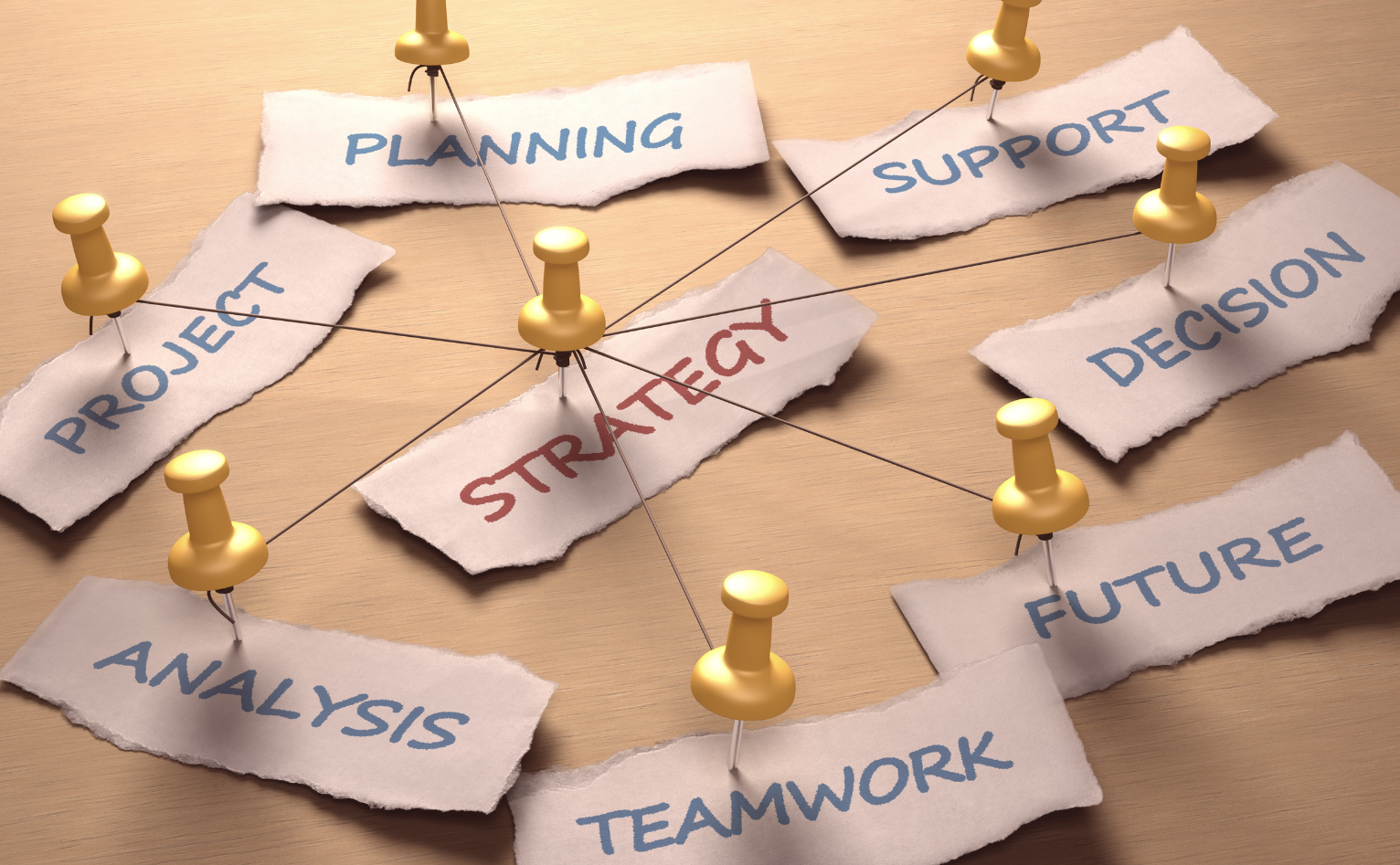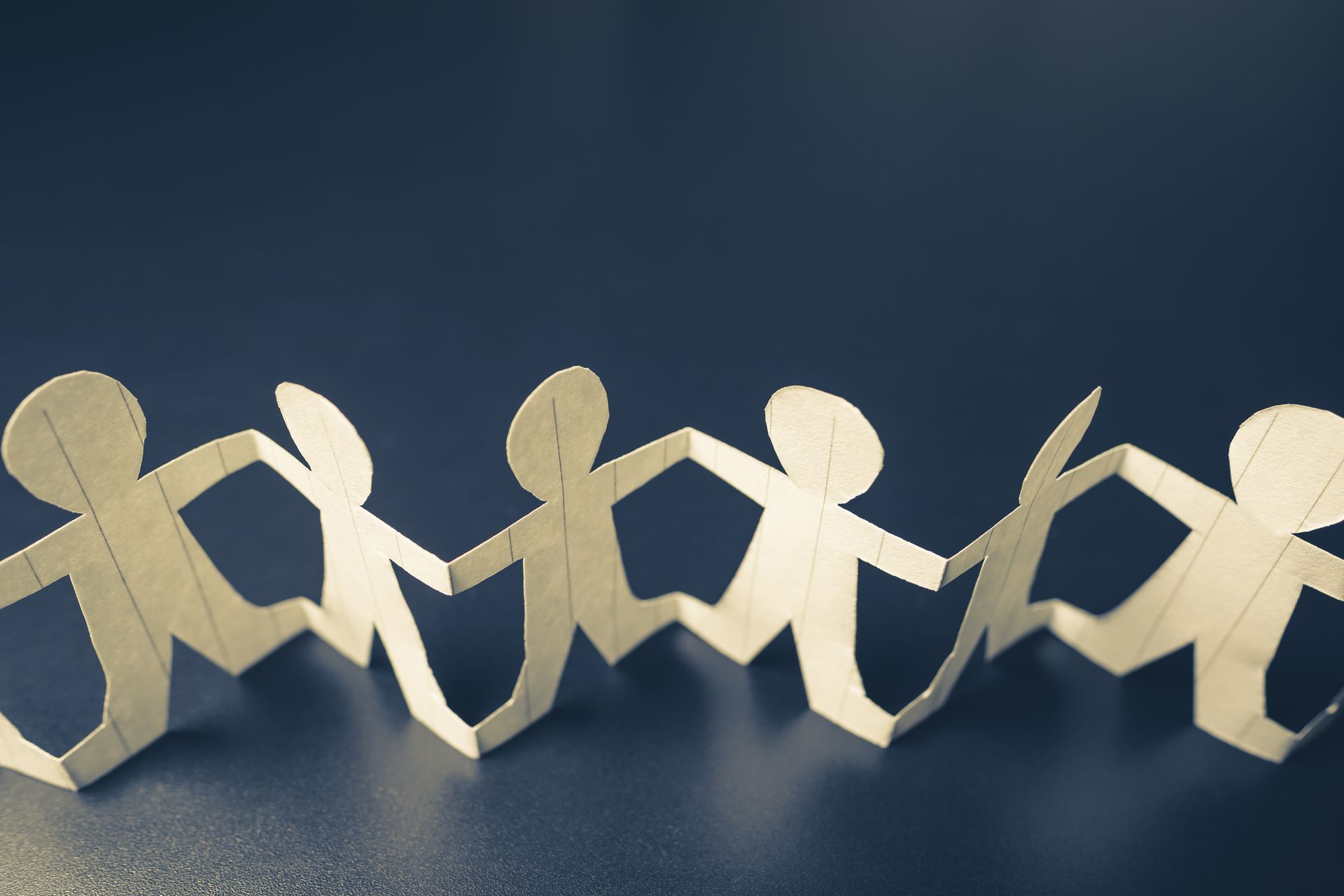What brought you to this moment in your career where the Sustainability Excellence Professional (SEP) made sense for you?
Throughout my career, I have worked on projects that demand managing complexity through effective communication. As project managers, we are taught that 90% of our success comes from how well we communicate and collaborate with others. Over time, I have continuously expanded my skill set, much like learning languages—where each new skill builds on the previous ones, making it easier to acquire more.
When I began studying for the SEP, I immediately connected with its approach. Beyond technical concepts, it emphasizes the soft skills and practical tools necessary to implement sustainable practices in real-world organizational settings. Understanding sustainability is one thing; driving real action and execution is another.
The SEP provided an enlightening body of knowledge, reinforcing familiar practices while introducing deeper, more specialized insights that expanded my perspective. It helped me bridge the gap between technical expertise and actionable strategies for meaningful impact.
My journey started in architecture, where project management skills enhanced my ability to bring spatial concepts to life efficiently. Adding sustainability to the equation shifted my focus to minimizing the environmental and social impact of built environments. Now, with the SEP, I see an even broader horizon—one that allows me to scale my impact and contribute to sustainability on a much larger level.
How are you putting the knowledge, skills, and ability demonstrated in the SEP to work in your career (or work) today?
One of the greatest challenges in sustainability is shifting entrenched paradigms to improve the systems we engage with. While many industries have had decades to refine best practices and drive systemic improvements, sustainability remains a relatively young field—one that touches on deeply sensitive aspects of the global order.
My work focuses on overcoming the barriers that come with these paradigm shifts, allowing for more impactful contributions to sustainability. A key area of interest for me is developing maturity models that provide organizations with a structured roadmap for sustainable transformation. These models help tailor sustainability interventions based on an organization’s level of interest, knowledge, and commitment—recognizing that not all companies are driven by the same values or goals.
The knowledge, skills, and tools I gained through the SEP are invaluable in this endeavor. They equip me with the ability to implement sustainable measures effectively, regardless of an organization’s starting point. By adapting strategies to different levels of sustainability literacy, I can ensure that interventions are both feasible and impactful, ultimately helping organizations progress toward a more sustainable future in a coordinated and meaningful way.
For those starting out in the sustainability field, what advice do you have for them?
Be pragmatic
Sustainability isn’t just about ideals—it’s about practical solutions. While passion is essential, a pragmatic approach will help you drive real change.
Master soft skills
One of the biggest challenges in sustainability is cutting through the noise. What seems clear to us can feel like "rocket science" to others. Effective communication is key—understanding your audience and tailoring your message to the right people makes all the difference.
Make it about people and tailor your message
Know your audience and deliver the right message to the right people. Too often, sustainability discussions are framed as planetary issues when, at their core, they are human survival issues. Overloading conversations with technical data may prove you right, but it won’t inspire action. Make your message simple, actionable, and relatable. Show people why it matters to them.
Expect resistance—and learn to manage it
Even when sustainability feels like the obvious right choice, expect pushback. Learn to navigate resistance with patience and resilience. Develop a thick skin, but stay graceful in overcoming obstacles—we are running a marathon which is a sprint at the same time.
Stay open-minded
There’s rarely a perfect solution. Sometimes, the best option is simply the least bad one. Be flexible, adapt, and focus on progress over perfection.
Sustainability is a journey—one that requires strategy, communication, and persistence. Stay committed, stay adaptable, and keep moving forward.




